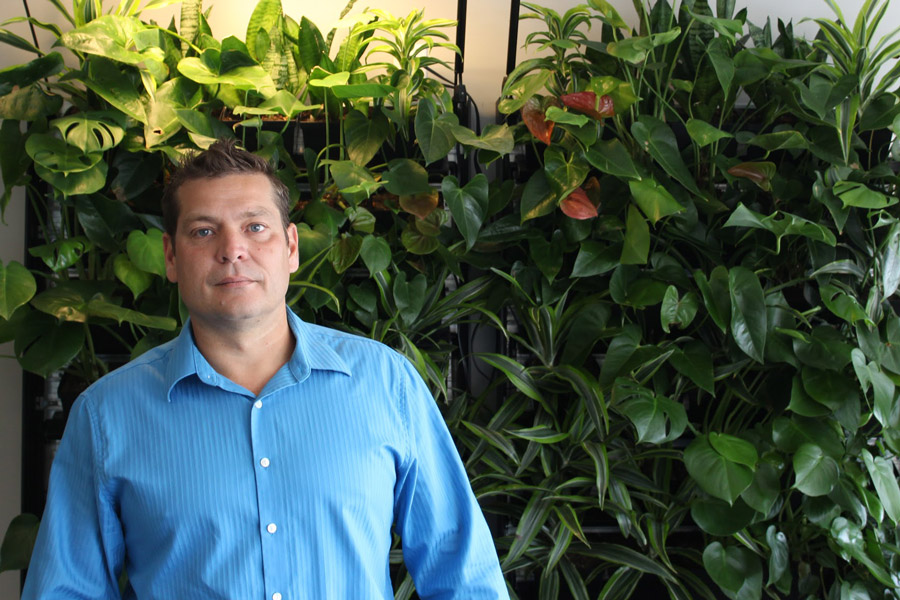Chris Izquierdo is the CEO of DevFacto Technologies, a company: “dedicated to creating software humans love to use.”
Specifically, they build enterprise software for companies and hire many of NAIT’s top software graduates. With many recent accolades in the software business, the CEO spoke about leadership and what his business provides his employees.
What does a leader mean to you?
In my opinion, leadership is overrated, I think leaders by title or position get a lot of the press and accolades while it’s usually the team behind you that elevates you or not. For me, leadership is about two things: setting or guiding strategic direction with input or guidance from the team strategically for the next three to seven years out, and inspiring people to do their best. If I can accomplish those two things, I think we will have a successful company that’s going to be around for a long time.
What are your strengths and weaknesses as a leader?
In terms of strengths, I’m very driven. I come from a different background than a lot of potential leaders that you could interview in this city because I grew up in Cuba. I didn’t learn English till I was about 23 and I didn’t know about Canada. So, I was 23 and showed up and was like “Oh it’s really cold.” I knew it was cold, but I didn’t know that cold. My experiences grow out of my experiences in Cuba, which is a very different society, the way everything is organized like for example communism vs capitalism. So, in terms of strengths I can bring a different perspective that is usually quite different than what people are expecting. In terms of weakness, my drive is also a weakness because I demand excellence from people and sometimes it can be difficult to accomplish or achieve.
What have been your greatest influences as a leader?
Well, I think my mom. She has a PhD in psychology, so she understands human nature and I ask her a lot of questions all the time. For example, I see something happening and I ask, “How can I change that behaviour?” or “What can I do in order to mitigate this challenge that we’re having?” So she’s been quite influential. My wife has been influential, she doesn’t have a PhD in psychology but she’s really good with dealing with people.
How do you encourage creative thinkers within your organization?
What you do is you give them the freedom to express that and give them a platform in which they can do it. We have a number of offers that are really about offering creative solutions. You can see it everywhere. For example, we let people write on the windows. You will see some writing and things like that. That’s a very small example, but it tells you about the freedom people have here.
Another thing is we remove roadblocks. Everyone here has dual monitors of 25-27 inches, so they don’t have to worry about this small screen and those little petty things. I understand those things cost money, but they get in the way of productivity. Last but not least, we give them time to be creative.
How do you help new employees understand your culture or organisational group?
Basically, we throw you into the deep end and we do this by socializing. At 11:30 we have something we call the lunch train, where we go around the office and collect everybody and we go grab lunch together. It’s our time to socialize. On Fridays at 4:00 we shut down the office and have beers together, so that’s how you adapt to what we’re trying to do. Although the conversations may be personal in nature, they are business in nature, too. That’s how we start those connections with our coworkers.
How do you develop and grow your employees into their roles into maybe more than what they may have thought they could be?
It’s not that difficult to do if you put the resources in place. If you’re new to the organization we don’t put you alone on a project. Everybody gets a mentor in the organization. So you meet with your mentor, ideally monthly, at minimum quarterly.
Everybody develops a yearly plan and that yearly plan is broken down into things you want to do in the business of DevFacto, your family, and your community. Everybody has a list of things they want to accomplish in the next year and based on that they get tracked, they get measured and there is a conversation that happens on a monthly basis. That’s one of the ways we develop you beyond DevFacto. For example, some people want to play guitar, like take guitar lessons, so that would be something that goes in there under your personal development. Then we have a conversation about it every month so to motivate you to go out and get it, or we look at what options there are for you and so forth.
Then also, twice a year we have an internal conference, called quality conference, for all our employees. We have guest speakers. Also, employees speak and we spend two days where we all learn together.
What advice do you have in building a relationship and trust in an organization?
Well, I think just be yourself. We try to eliminate any politics here. Any decision we make should follow the order of what works for your customer, what works for your team and then, what works for you. That’s the order you should make your decisions. If you use a framework like that and be yourself and don’t hide behind your position or politics or things like that, I think then you will earn that trust.
What is one characteristic that you think every leader should have?
The one that comes to mind is transparency and that is something we really value at DevFacto and it’s something that I think is really important because that’s how you earn their trust. You have to have people want to follow you and if they don’t want to follow you then it doesn’t matter what your mission is or your vision is, people won’t trust you.
– Jeff Trainor





